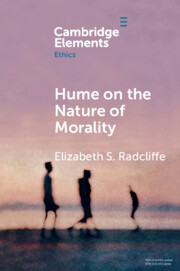A survey of theories on the passions and action in seventeenth- and eighteenth-century Britain and western Europe reveals that few, if any, of the major writers held the view that reason in any of its functions executes action without a passion. Even rationalists, like Cambridge Platonist Ralph Cudworth and English clergyman Samuel Clarke, recognized the necessity of passion to action. On the other hand, many of these intellectuals also agreed with French philosophers Jean-François Senault, René Descartes, and Nicolas Malebranche that, for passions to be useful or to become virtues, they must be governed by reason. Without the moderation of reason, passions will be unruly, distort our notions of good, and disrupt our rational volitions. In response to these popular early modern perspectives, Enlightenment thinker David Hume offered a now-famous argument that reason without passion cannot motivate, drawing the further conclusion that reason cannot govern the passions, either. Given that no one in Hume's era seemed to defend the claim that reason alone can motivate action, what was Hume's intention?


